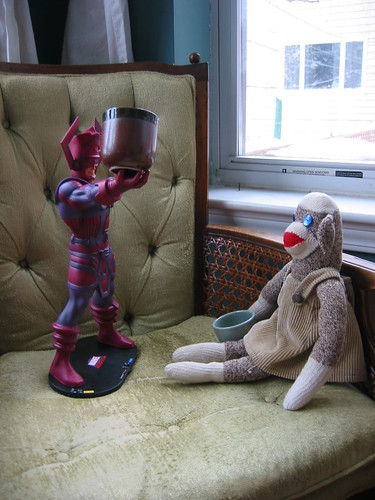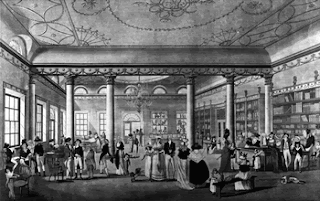According to my mother, as a girl she had had many admirers. She had known a family called de la Mare and had been pursued to the mistletoe by one of the sons who was called Bert. There had been another son called Walter. As my interests widened, I asked her once what Walter had been like.Every time I find one of these anecdotes buried in a little-known book, I feel grateful yet again for John Gross, who ferreted out so many of them for his indispensable New Oxford Book of Literary Anecdotes. Gross died just over a year ago, and the Guardian obituary, which praises him as a classic man of letters, points out that one of the merits of his anthologies was their originality:
"Walter? Can't say he made much impression . . . oh, yes, I do remember once at supper at the Bedbrooks, he chased one of the girls round the table with the bread knife. He was upset about something or other, I forget what it was."
John Mullan pointed out in the Guardian that, unlike many anthologists, Gross came up with the unfamiliar--less than 10% of his material had previously appeared in other Oxford anthologies.The obituary also quotes John Carey, on the Anecdotes volume's unsuitability for the usual role of anthologies as bedside books. That book, said Carey,
should on no account be allowed in the bedroom, or you will find yourself awake in the cold, small hours, still turning the pages.The New Oxford Book of Literary Anecdotes doesn't include any of stories de la Mare--a mark, perhaps, of its only flaw, that, rather than 1,000 pages it's not quite 400--which makes me feel that I'm doing something useful by extracting and posting the story of this minor incident.
You won't, I expect, be surprised to learn that while de la Mare is absent from Gross's anthology, knives do make some appearances. Nora Joyce wields one in this account, taken from Portraits of the Artist in Exile:
Nora Joyce, who had listened to him intently, now suddenly jumped up, and, while Joyce continued his calm, interested analysis of Hitler's personality from the point of view of its immense force and drive, she grabbed her knife, which she had just then been using on a poulet de bresse, rushed toward him and shouted, "Jim, another calm word about that devil and I will murder you!" Her response had a strange mixture of genuine anger and burlesque acting.Then there's this chilling account of Jonathan Swift's final, mentally disordered years, taken from Irvin Ehrenpreis's The Personality of Jonathan Swift:
One day in mid-March 1744, as Swift sat in his chair, he reached towards a knife, but Mrs Ridgeway [his housekeeper] moved it away from him. He shrugged his shoulders, rocked himself, and said, "I am what I am, I am what I am"; some minutes later he repeated the same thing two or three times.If there is an afterlife, I like to imagine that it includes, well, probably not a Hall of Anthologists, but perhaps instead a musty, book-lined Nook of Anthologists, or a quiet, out-of-date, slightly down-at-heel-looking Bar of Anthologists. Elbowed on that bar would be John Gross and D. J. Enright, trading drink and tales late into the celestial night.















